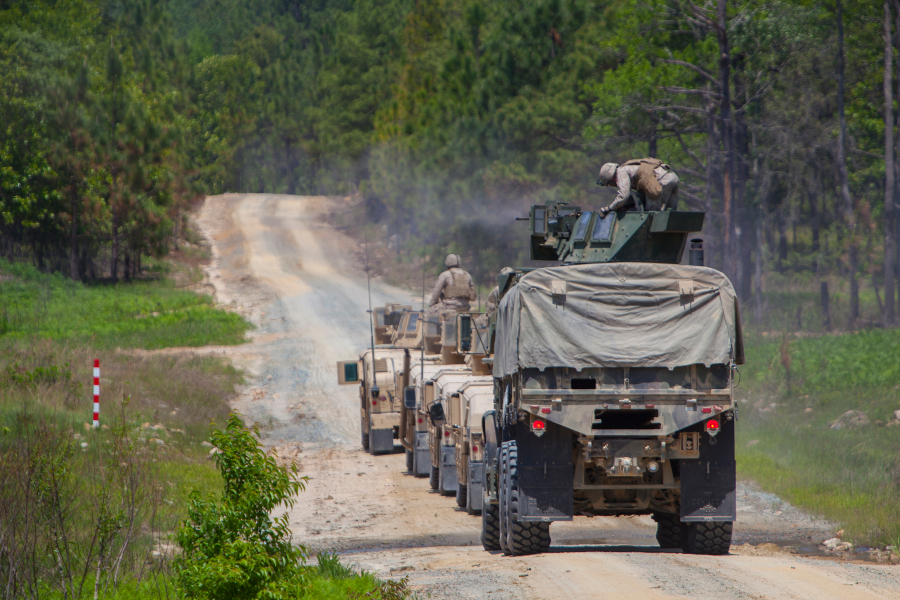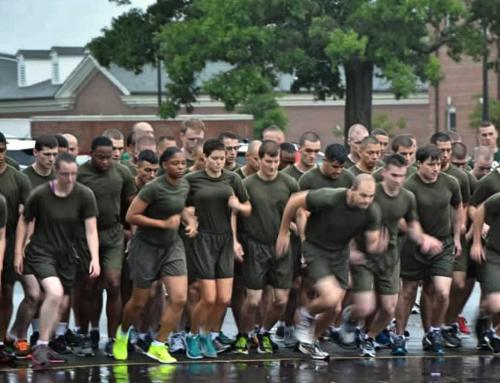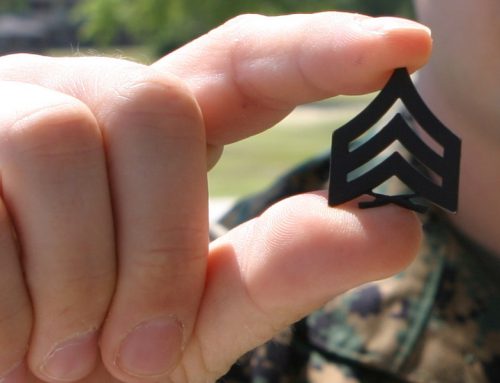The transition you will make from your MOS school to the fleet as a junior officer is both exhilarating and nerve wrecking. Those first few months will be the busiest of your life. Here are some takeaways.
What you know, what you don’t know, and what you don’t know that you don’t know
TBS made me overqualified in many areas. I learned more than I will probably ever need to know about leadership, MAGTFs, infantry tactics, field skills, communications, PT, and PowerPoint. In one sense, the schools leave you far more qualified than most if not all of your Marines in a lot of key areas.
That said, while both schools do a fantastic job of teaching you the technical details of doing your job leading Marines in the field, they are both woefully inadequate at teaching you how to do “garrison” work. In my two months at my new unit, I’ve spent two weeks in the field. Those two weeks were the only time I’ve had fun doing my job. Garrison life will be your downfall. There is an insane amount of administrative work that will take up a significant amount of your personal time. On top of that, it’s really easy for your Marines to get in trouble in garrison. More on that later.
Bottom line: You can report to your unit confident that you’re going to be a badass platoon commander in whatever MOS it is that you get. However, be prepared to learn a great deal about garrison life on-the-fly. It’s the least sexy stuff, but it’s the stuff that’s going to take up the vast majority of your time as a Marine officer.
More Marines, More Problems
All the stories you’ve heard are true. Young Marines do some stupid stuff. Within days you will be faced with the most mind-boggling personal problems you can imagine. To name a few that I’ve run into:
- A Marine who got married to another Marine, fathered a kid, and then promptly got divorced.
- A Marine who is about 300lbs, because for the past 6 months he’s been on light duty for mysterious pains.
- A Marine who has experienced some personal trauma ending up in the hospital after cutting herself.
These are just to name a few. I’ve stood duty twice, and both times I was unable to sleep at all due to a Marine getting stabbed downtown and a drunk Marine beating the shit out of a random person on the street.
The importance of the SNCO
One of my peers has a MSgt for a SNCO, and he’s totally checked out, just waiting to retire. The peer in question isn’t a terribly strong platoon commander herself (probably because she didn’t have a strong SNCO to mentor her), and consequently, her platoon sucks.
So like I said, my Gunny is “pretty good.” He’s not perfect. Some SNCO’s will be bad, like that MSgt. As such, you need to warm up to the uncomfortable reality that you will potentially have to give direct orders and negative counseling to a Marine who’s like 35 years old and joined the Marine Corps the same year you were born. That’s not easy. But it may be necessary.
Hopefully you get a great SNCO. If you get a shitty one, you’re in for a wild ride, and you’re going to have some unique leadership challenges. Just remember: you’re an officer and you’ve received the best officer training the world has to offer. Some things you’ll have to learn by experience and asking questions, but on a lot of things, you KNOW what right looks like. If your SNCO isn’t enforcing that standard, you can’t be afraid to tell him so.
Leading Marines Is Incredible
A lot of the above detailed the challenges you will face and the new kind of suck you will experience. I’d be doing you a disservice if I left all that out… there’s a lot of suck.
The little things that make it all worth it are the moments when you realize the tremendous impact you’re making on these Marines’ lives. When you teach them something new that makes them see their job in a whole new light. When you go to bat for them to bail them out of undeserved trouble or provide them a unique opportunity. When the decision you make appreciably changes the quality of work your platoon puts out.
It’s hard to put a quantifiable value on all these things. And the frustrating times are far more numerous than those that are rewarding. But when there’s rewards, they feel good.
So as bad as it gets, just remember that it’s not just everyone who gets to lead young men and women who, each for their own reasons, decided they wanted to endure the toughest training to join the best branch of the best military in the United States.






Leave A Comment